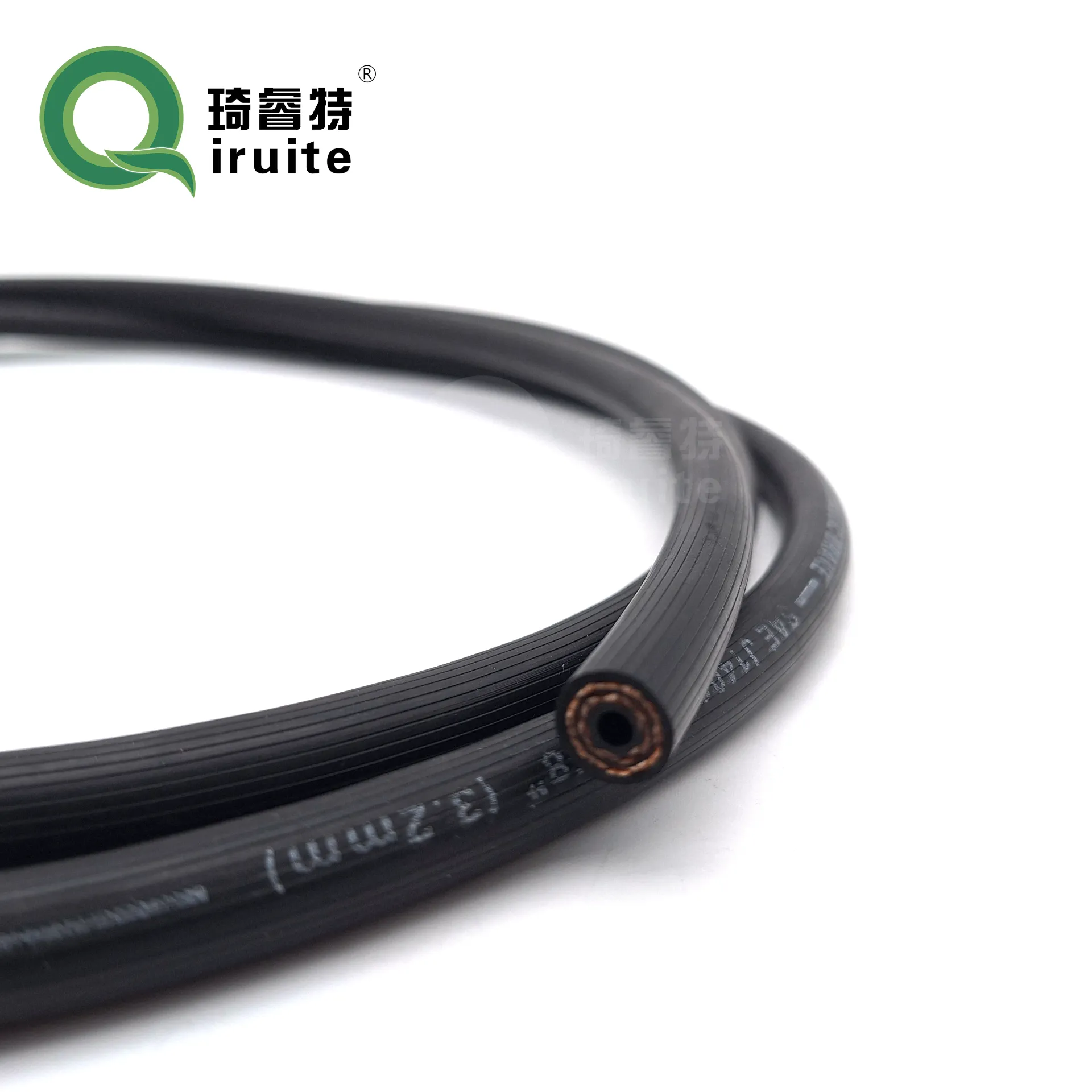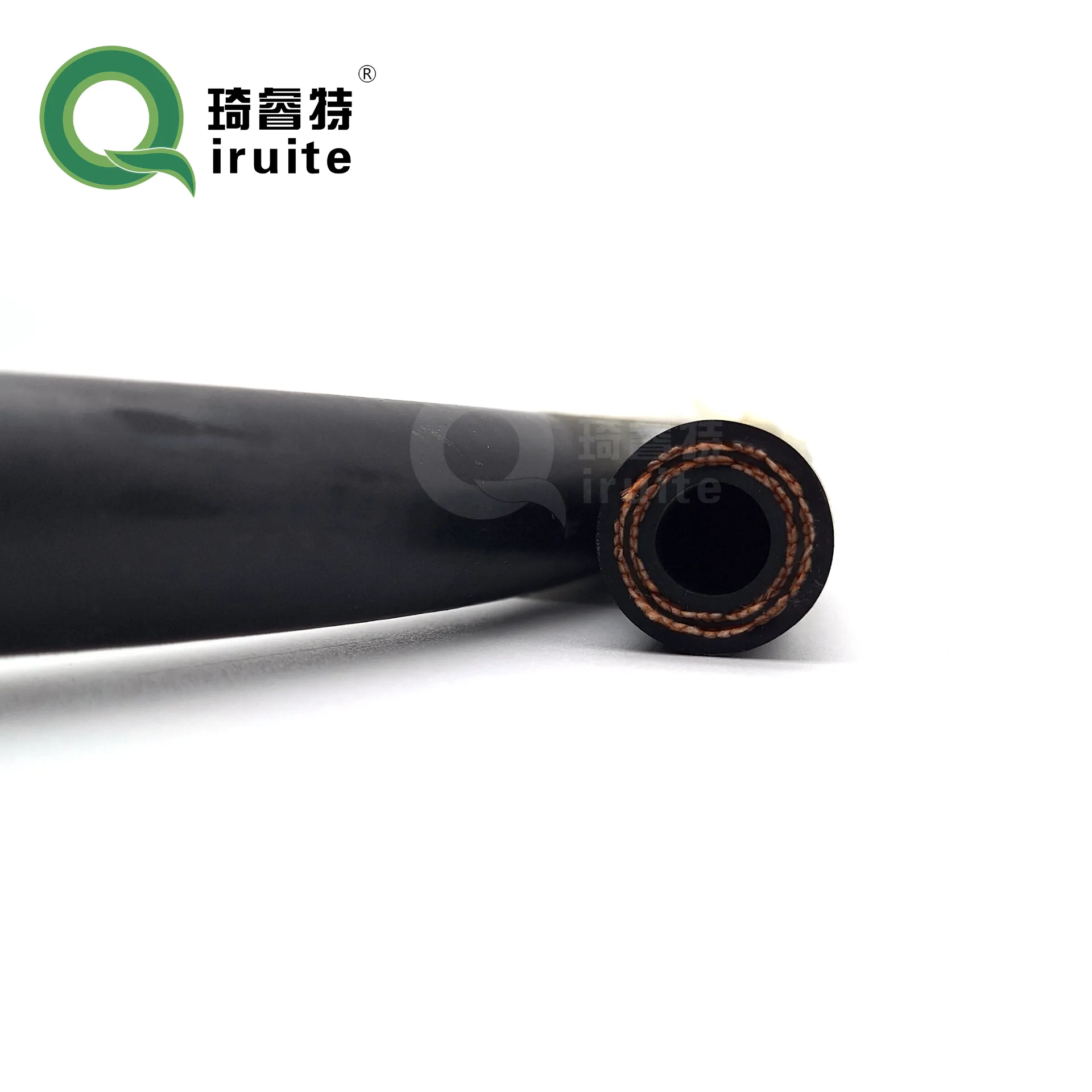High-Quality Brake Hose: Features, Benefits, and Replacement Guide
A well-functioning brake hose is essential to ensure your vehicle’s braking system operates smoothly and efficiently. The materials, design, and overall durability of a brake hose can significantly affect its performance, safety, and longevity. This article will discuss the benefits of brake hose made from top-quality materials, its key characteristics, and how often brake hose replacement should be conducted to maintain peak performance.

Benefits of Brake Hose Made of High-Quality Woven Polyester or Nylon Material
One of the most significant advantages of a brake hose made from high-quality woven polyester or nylon is its durability. These materials are engineered to withstand the constant pressure and harsh conditions that brake hoses face. Polyester and nylon not only provide flexibility but also offer resistance to wear and tear, ensuring that the brake line remains intact and functional for a longer period.
Moreover, the strength of these materials allows them to resist cracking, which is a common issue with hoses made from inferior materials. By investing in a brake hose made of woven polyester or nylon, you’re ensuring that your vehicle’s braking system is reliable, especially during high-pressure situations such as sudden stops.
Brake Hose Characteristics: Low Volume Expansion, Low Moisture Permeability, and Heat Resistance
High-quality brake hose materials like polyester and nylon offer distinct advantages when it comes to performance characteristics. One of the critical factors in braking efficiency is low volume expansion. A brake hose with low volume expansion ensures that hydraulic pressure is transmitted quickly and efficiently through the brake line, leading to faster and more responsive braking. This characteristic is essential for maintaining vehicle safety, especially in high-stress braking situations.
Another vital characteristic is low moisture permeability. A brake hose with low moisture absorption helps prevent brake fluid contamination, which can severely degrade braking performance. This is especially important in humid or wet environments, where moisture infiltration can lead to corrosion and damage over time.
Additionally, high-quality brake hoses are built to withstand heat and ozone exposure. These hoses are designed with heat resistance in mind, ensuring that they don’t degrade or lose integrity even under high temperatures caused by extensive braking. Ozone resistance further protects the brake hose from external environmental factors, extending the lifespan of the hose.
How Often Should You Conduct Brake Hose Replacement?
Brake hose replacement is a vital part of vehicle maintenance that should not be overlooked. While brake hoses are built to last, they are still subject to wear and tear over time. Most manufacturers recommend that the brake hose be inspected every 20,000 to 30,000 miles or during routine brake maintenance. However, if you notice any visible signs of wear, such as cracks, bulging, or leaking fluid, it's crucial to replace the hose immediately to avoid brake failure.
It’s also essential to consider the conditions in which you drive. For vehicles used in off-road or extreme weather conditions, more frequent brake hose replacement may be necessary due to the increased wear and tear from dirt, debris, and harsh environmental elements.

Advantages of Regular Brake Hose Replacement for Safety
Regular brake hose replacement ensures the ongoing safety and performance of your vehicle. A faulty or worn-out brake hose can result in reduced braking efficiency, leading to delayed stops or complete brake failure. Replacing the brake line at the recommended intervals prevents these issues, ensuring your vehicle’s braking system remains responsive and reliable.
In addition, modern brake hoses are designed with advanced materials and engineering to provide better performance than older models. By replacing your brake hose regularly, you can take advantage of these technological advancements to enhance your vehicle's overall braking performance.
Choosing the Right Brake Line for Your Vehicle
When it comes to selecting the right brake line for your vehicle, it’s essential to choose one that meets the specific requirements of your braking system. Not all brake hoses are created equal, and finding the right one can make a significant difference in performance. Look for brake hoses made from high-quality materials like woven polyester or nylon for durability and long-term performance.
In conclusion, the brake hose is a critical component of your vehicle’s braking system, and its maintenance should be a priority. Investing in a high-quality brake hose and ensuring timely brake hose replacement will keep your vehicle's brakes functioning at their best, providing peace of mind on the road. Whether you’re navigating city streets or tough terrains, a reliable brake line is essential for safe driving.
-
Quick Release Ball Joint – Tool-Free, Durable, Leak-TightNewsNov.13,2025
-
Spiral Guard Hose Protection — Durable, UV-Resistant WrapNewsNov.13,2025
-
SAE J1401 Brake Hose Specifications: Durable, Low ExpansionNewsNov.13,2025
-
SAE J1401 Brake Hose Specifications | DOT-Approved, DurableNewsNov.13,2025
-
Spiral Guard Hose Protection - Abrasion-Resistant, UV-StableNewsNov.10,2025
-
SAE J1401 Brake Hose Specifications | DOT-Certified, DurableNewsNov.10,2025

